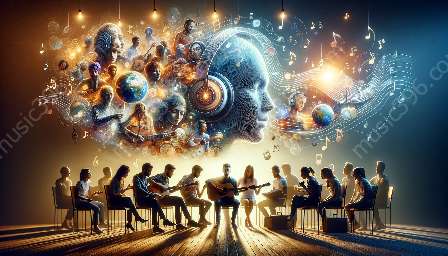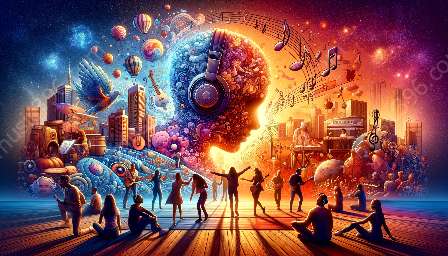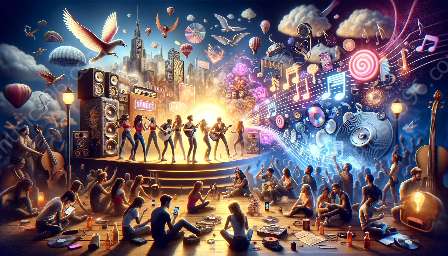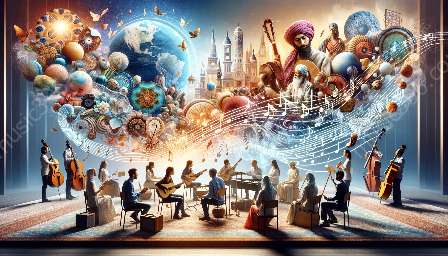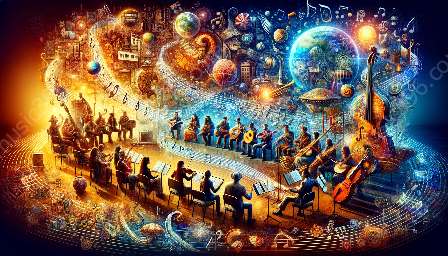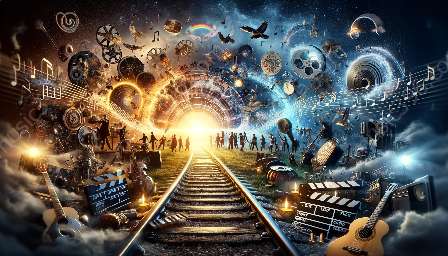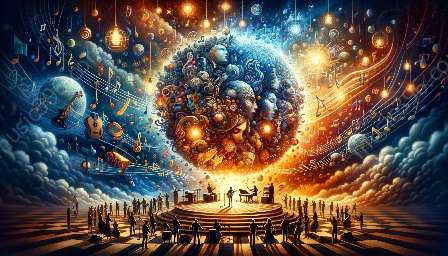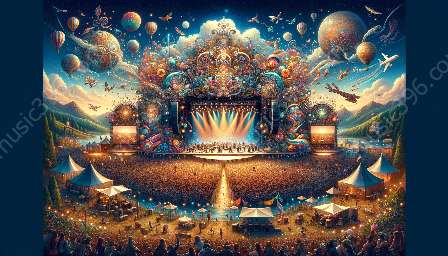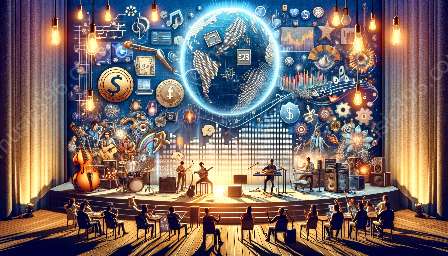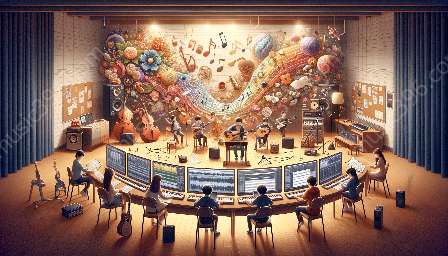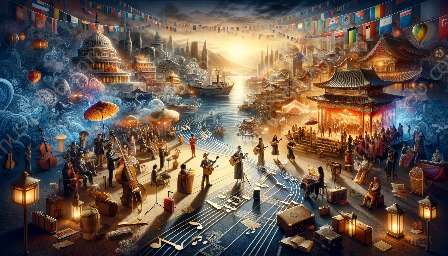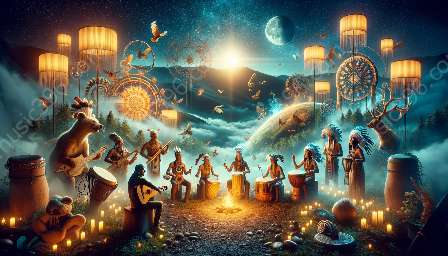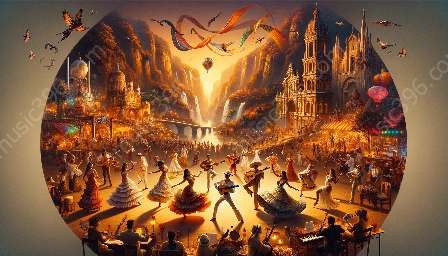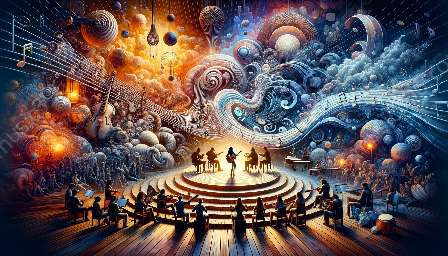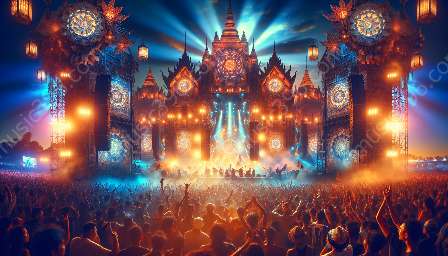Popular music has always played a significant role in challenging societal norms and shaping youth culture. From rock 'n' roll to hip-hop, music has been a powerful force in driving cultural change and pushing boundaries. This topic cluster will explore the impact of popular music on challenging societal norms, particularly within youth culture. We'll examine the ways in which music both reflects and influences cultural change, ultimately shaping the values and attitudes of society.
1. Evolution of Music and Youth Culture
Music has been a central element of youth culture for generations. It serves as a vehicle for expression, rebellion, and identity formation. As popular music evolves, it reflects the changing attitudes and values of the youth, often paving the way for new societal norms.
1.1 Rock 'n' Roll and Rebellion
The emergence of rock 'n' roll in the 1950s revolutionized the music industry and youth culture. With its rebellious lyrics and energetic beats, rock 'n' roll challenged the conservative social norms of the time, particularly in relation to race, sexuality, and freedom of expression. Artists like Elvis Presley and Chuck Berry became icons of rebellion, pushing the boundaries of societal expectations.
1.2 Hip-Hop and Social Commentary
In the late 20th century, hip-hop emerged as a cultural force, particularly among urban youth. Hip-hop music and its accompanying lifestyle challenged societal norms through its unfiltered and raw portrayal of inner-city life, systemic racism, and economic inequality. It provided a platform for marginalized voices and ignited discussions around social justice and political activism.
2. Music as a Catalyst for Social Change
Popular music has often served as a catalyst for social change, mobilizing youth and challenging established norms. Through its lyrics, imagery, and performances, music has the power to provoke thought, spark debates, and inspire action. Songs have addressed pressing social issues, including gender equality, racial justice, LGBTQ+ rights, and environmental activism.
2.1 Music and Gender Role Reversal
Throughout history, popular music has contributed to the redefinition of gender roles and expectations. Artists such as Madonna, Beyoncé, and Lady Gaga have used their music and public personas to challenge traditional gender norms, promoting themes of female empowerment, sexual liberation, and gender fluidity.
2.2 Music and LGBTQ+ Representation
In recent decades, popular music has played a vital role in the fight for LGBTQ+ rights and visibility. Artists like Elton John, Freddie Mercury, and more contemporary figures like Troye Sivan and Janelle Monáe have used their platforms to advocate for LGBTQ+ inclusion and acceptance, thereby challenging societal norms around sexual orientation and gender identity.
3. Cultural Appropriation and Authenticity
As popular music draws from diverse cultural influences, it has sparked discussions around cultural appropriation and authenticity. Artists who borrow from different traditions and genres often face scrutiny over issues of respect, representation, and commodification. These debates have become central to challenging and redefining societal norms related to cultural exchange and exploitation.
3.1 Controversies in Music and Cultural Appropriation
From the adoption of reggae rhythms by non-Jamaican artists to the use of traditional dress and imagery in music videos, numerous instances of cultural appropriation in popular music have sparked controversies. These incidents have led to critical conversations about power dynamics, privilege, and the responsibilities of artists in respecting and honoring diverse cultural heritages.
3.2 Embracing Authenticity in Music
Conversely, there has been a growing movement within the music industry to amplify authentic voices and narratives from underrepresented communities. This has led to the rise of genres like world music, afrobeat, and global pop, which showcase the rich tapestry of cultural expressions and challenge the dominance of Western-centric musical paradigms.
4. Impact of Digital Platforms and Social Media
In the digital age, music consumption and distribution have been transformed by online platforms and social media. These technological advancements have democratized the creation and dissemination of music, allowing artists to address societal issues directly and connect with global audiences. Social media has become a conduit for amplifying marginalized voices and challenging traditional power structures within the music industry.
4.1 Viral Activism and Music
The rise of viral activism has seen musicians harness the power of social media to mobilize movements, raise awareness about social injustice, and organize grassroots campaigns. From the Black Lives Matter movement to climate action initiatives, music has been at the forefront of digital activism, challenging societal norms and demanding change.
4.2 Community Building and Online Subcultures
Online platforms have facilitated the formation of diverse music subcultures, bringing together individuals who challenge mainstream norms and celebrate unique identities. These digital communities have played a critical role in promoting inclusivity, diversity, and acceptance, ultimately contributing to the evolution of societal norms related to music, culture, and identity.
5. Conclusion
Popular music continues to exert a profound influence on challenging societal norms, particularly within youth culture. From shaping attitudes towards gender roles and LGBTQ+ representation to igniting conversations about cultural appropriation and authenticity, music has consistently been a driver of cultural change. As digital platforms and social media further amplify voices and foster community engagement, the future impact of popular music on societal norms remains a dynamic and evolving frontier.


